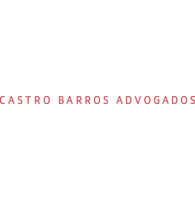
Brazil Teams 2019

| BrasilAgro




BrasilAgro
Our team is headed by our general counsel and CCO, Mariana Rezende who joined BrasilAgro in 2008, having prior experience working in private practice in Brazil and in New York, acting as an international lawyer, in the capital market team. She has comprehensive experience in corporate law matters, mergers and acquisitions, public offerings, and legal advisory to listed companies. Besides her expertise as a lawyer, she is well recognised as an active member of the Agricultural and Land Relations Special Commission of Brazil‘s Lawyers Association, the Standards and Regulations Committee of the Brazilian Rural Society (SRB), the Agribusiness Law Commission of IPOJUR and the Editorial Council of Revista Jurídica do Agronegócio. Along with her, we have Renata Mattos, who joined the company about three years ago and holds a specialised degree in corporate law since 2011 and coordinates compliance and contract matters. Also reporting directly to Rezende, is Henrique Miguel, our legal specialist on real estate practice, real estate registry, notary and agrarian law matters. Under Mattos’ supervision is Humberto Lemos in litigation and tax matters and Raquel Duque in drafting of agricultural and multi-service agreements.
In 2018, we closed two complex matters from a legal standpoint and important transactions for the sale of two different farms, Araucária in the State of Goiás and Jatobá in the State of Bahia, for R$66.2m and R$177.9m, respectively. These sales reinforce the success and consistency of the company’s business model, with the capture of capital gains through the sale of properties, with IRR (Internal Rate of Return) ranging between 14% and 27% in the last years.
In 2018, we assisted BrasilAgro in a debt public offering, consisting of the issuance of Agribusiness Receivables Certificates (ARC) in the amount of R$142.2m and concluded the spin-off process of Cresca, a joint venture among BrasilAgro and CCSA in Paraguay, for the acquisition, development and operation of lands. With the end of the JV, BrasilAgro acquired 50% of Cresca’s assets and liabilities, for the amount of R$141m, through the new subsidiary Agropecuária Morotí.
In 2019, we closed a transaction with Sinagro, a joint venture with UPL, the larger Indian agrichemical company, consisting of the execution of a leasing agreement to explore an area of 23,500 hectares, composed of 12 farms, located in the region of Xingu, State of Mato Grosso, with a term of 10 years, for the production of grains in mature areas suitable for a second crop. Such agreement is in line with BrasilAgro’s business strategy that focuses on the reduction of the volatility of agricultural operations results and maximisation of the combination of the company’s operating and real estate return.
Although we don’t have a general policy on diversity and inclusion, we have a policy in order to support the hiring of maintenance at work for disabled people and our HR is currently studying the possibility of implementing a gender inclusion policy, which is an initiative that I strongly welcome and support, especially to promote more women in high level management positions (we rarely see it in the agribusiness sector) and also even better conditions for women to work in our farms and production units. I am personally extremely committed to diversity. I believe it is a strong tool for the attraction and retention of minority groups outstanding talents for my and all the company’s teams, other than a way to inspire and promote the critical thinking about such an important matter.
In May 2018, Brazil faced a widespread truck drivers’ strike, also called a diesel crisis, which caused a nationwide transportation paralysis, highway blockades, cargo delays, shortages of food, supplies and fuel in Brazil, bringing dramatic impacts to the Brazilian economy reaching the amount of approximately R$26bn. The strike was led by self-employed truck drivers who demanded cuts in diesel fuel prices, fuel taxes, and reforms of laws and regulations applicable to their occupation. The truckers’ strike forced the Brazilian government to make certain concessions, such as the expansion of fuel subsidies, among others, in order to bring the strike to an end. The most significant concession made by the Brazilian government was the introduction, by means of the enactment of Resolution nº 5820 of May 30, 2018, which has already been amended 11 times since then, of a freight rate schedule providing for minimum freight rates and minimum rates per kilometre, depending on the distance covered and type of cargo. The minimum freight rates currently in force have materially increased transportation costs in Brazil, caused a high level of legal uncertainty for all agribusiness sector players and, therefore, negatively impacted our business and results of operations. All reasons why we urge for a final Supreme Court judicial decision or a new uncontroversial regulation on this matter.
Beyond the required essential attributes for an in-house legal team, in order to be innovative and achieve great results an in-house legal team must have a proper mind-set focused on legal effective solutions for the Company and sometimes also for its market segment. The knowledge of the business, the lack of interest conflict and the knowledge of the company’s aims, strategies, appetite for risk, weakness and strengths give a better condition for an in-house counsel than for an external lawyer, although he/she could have more legal expertise in the matter being handled, to achieve great results. Therefore, even in the cases that the company is represented and/or assisted by external lawyers, the whole of the in-house legal team is of extreme importance and the quality of the relationship established between them is key to the success of any litigation and/or consulting legal project.